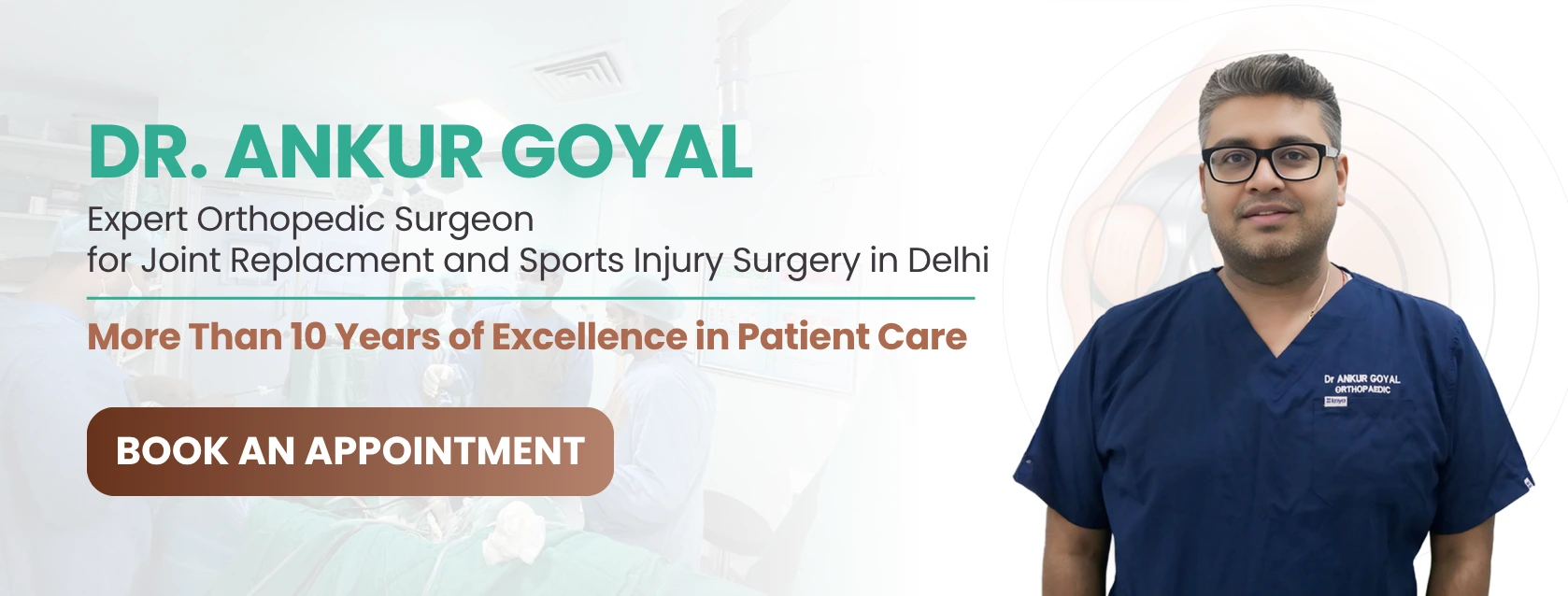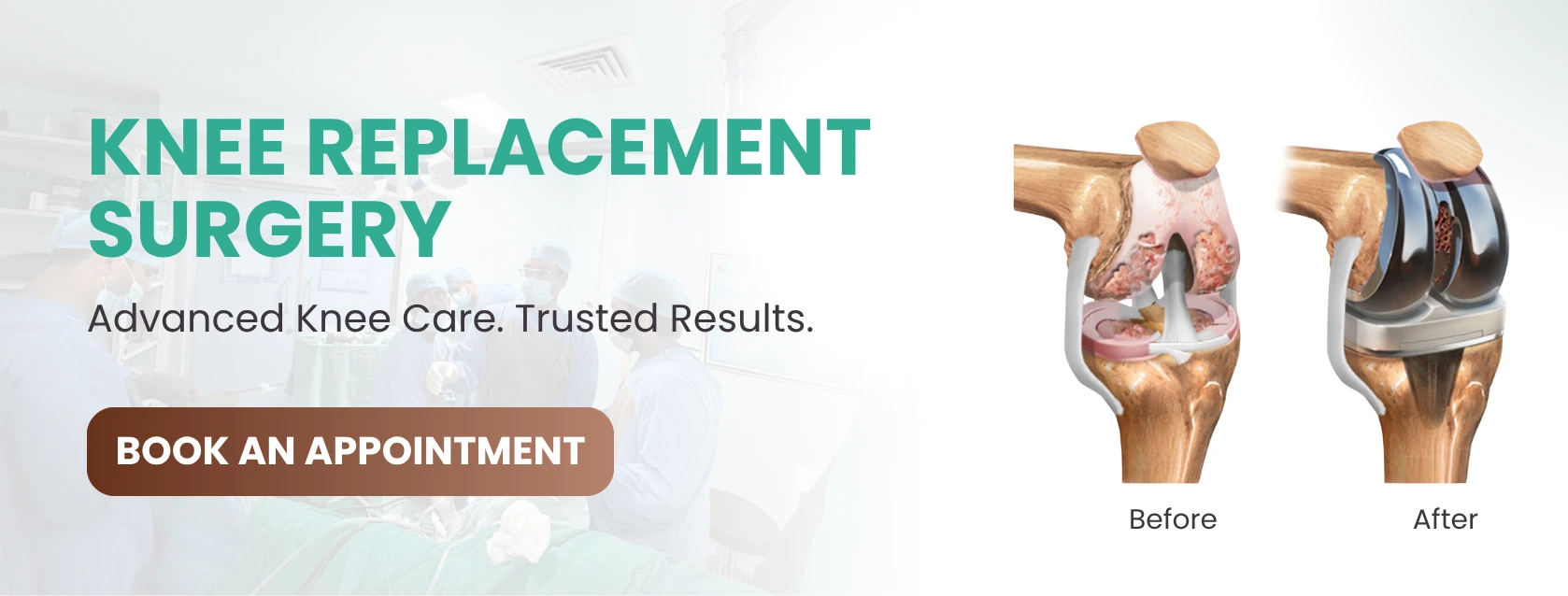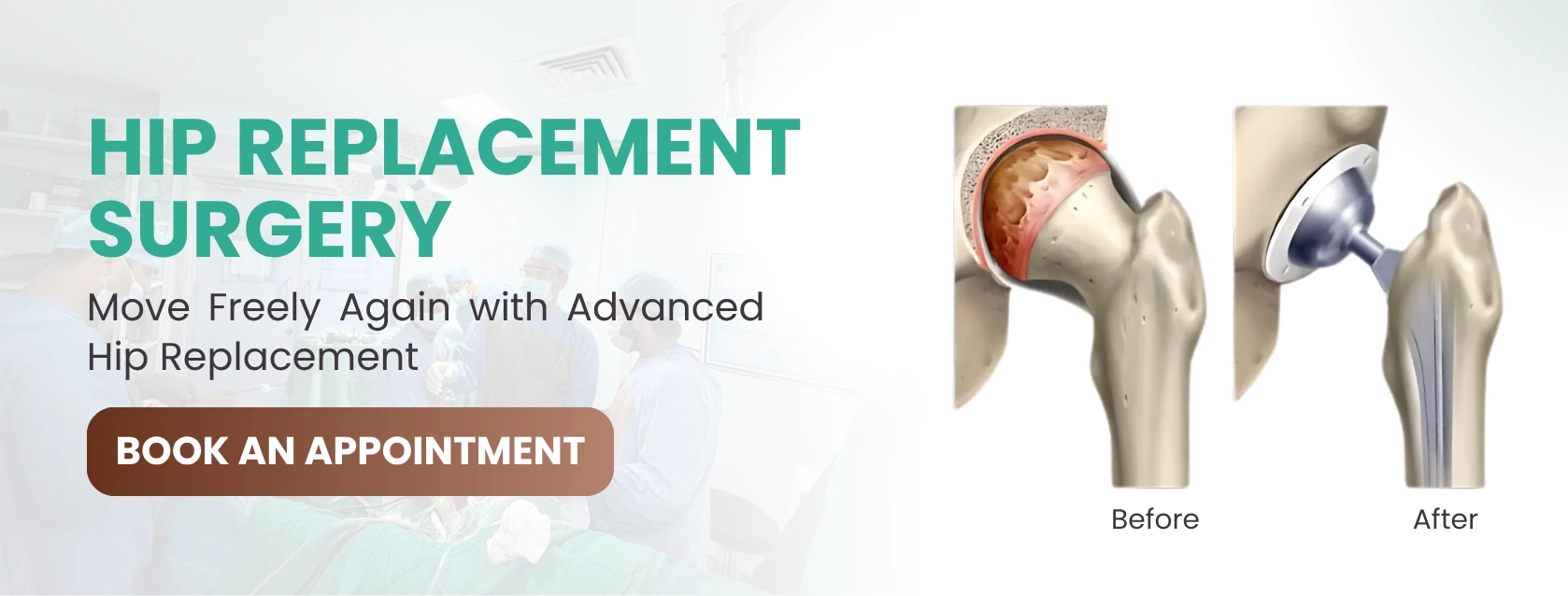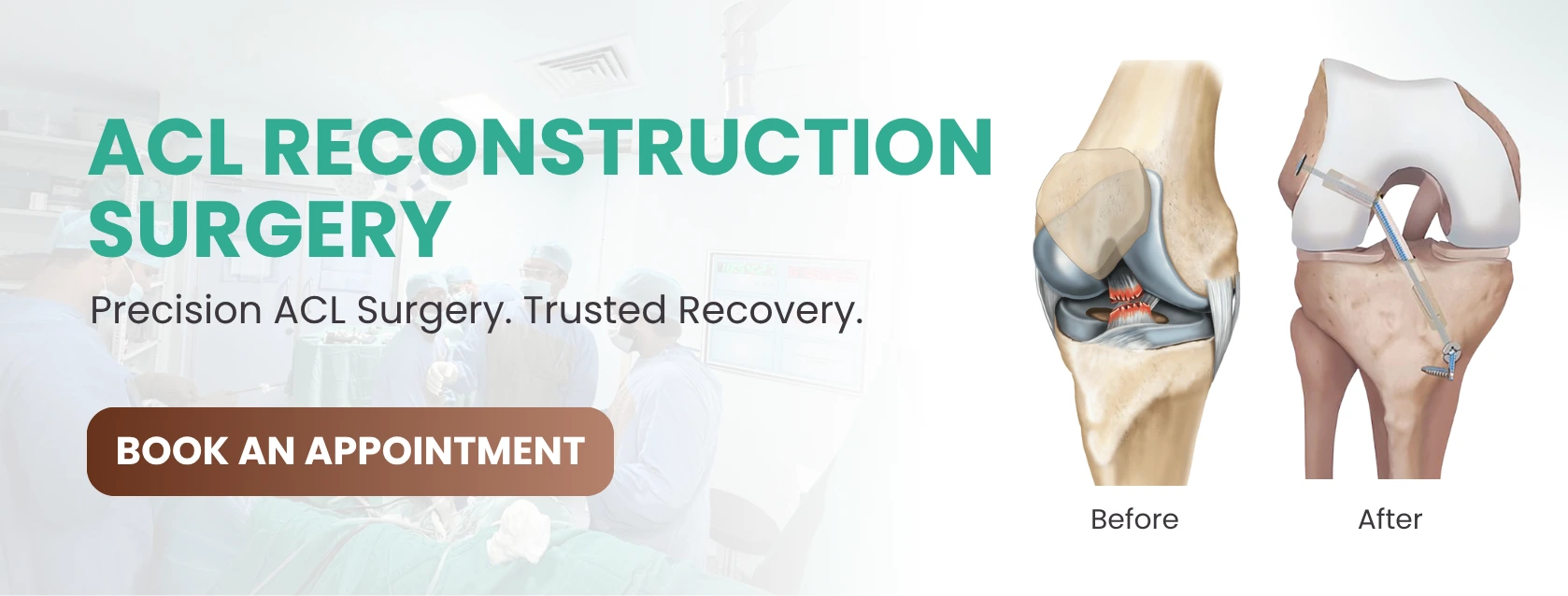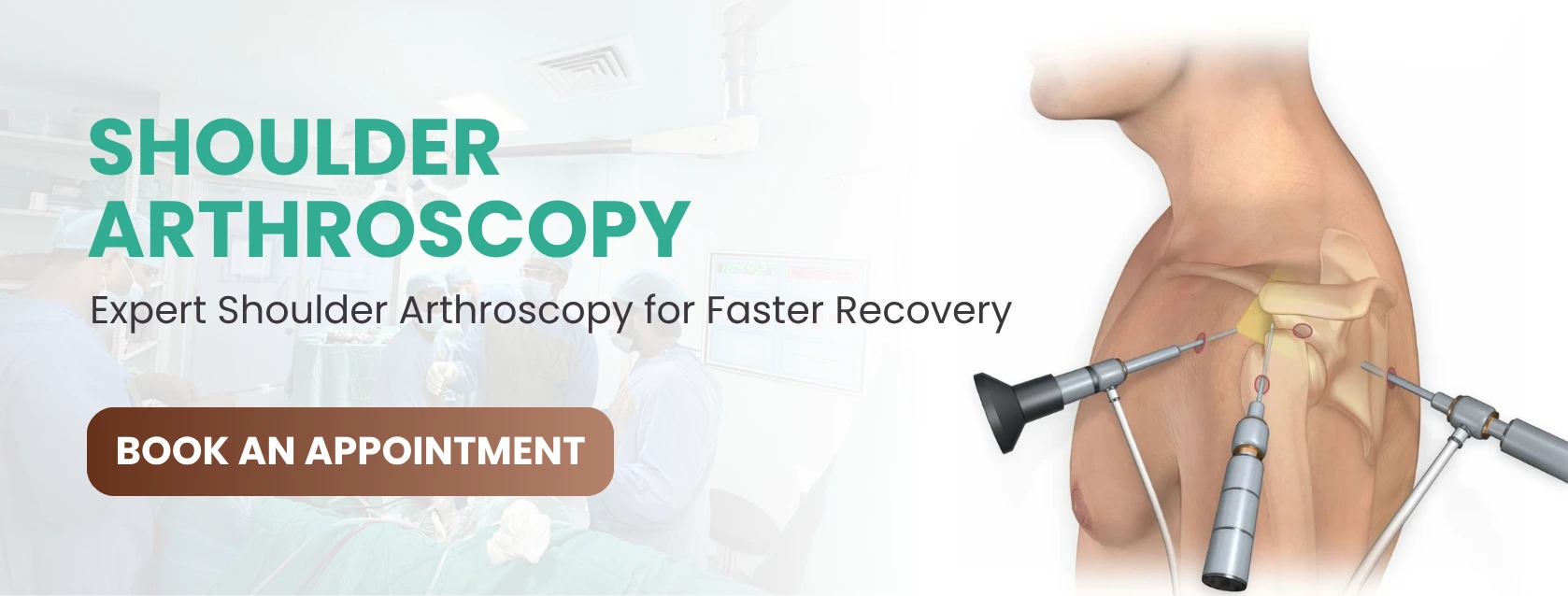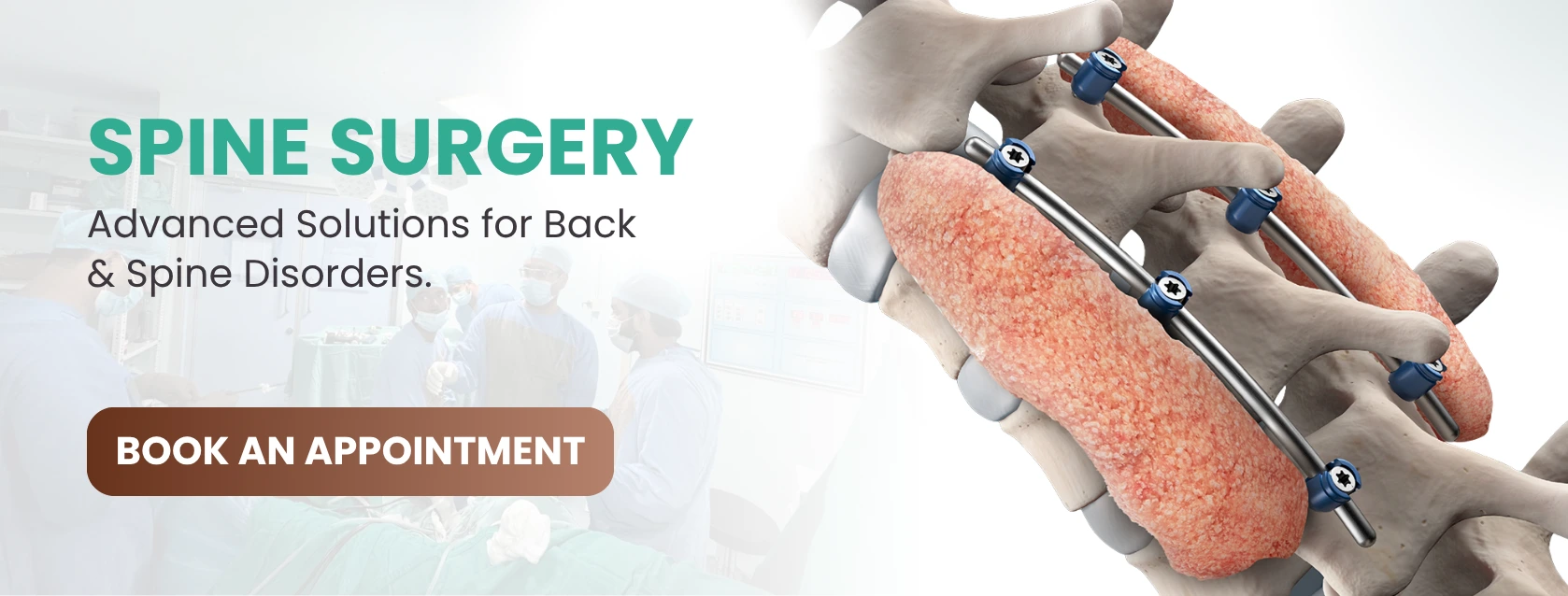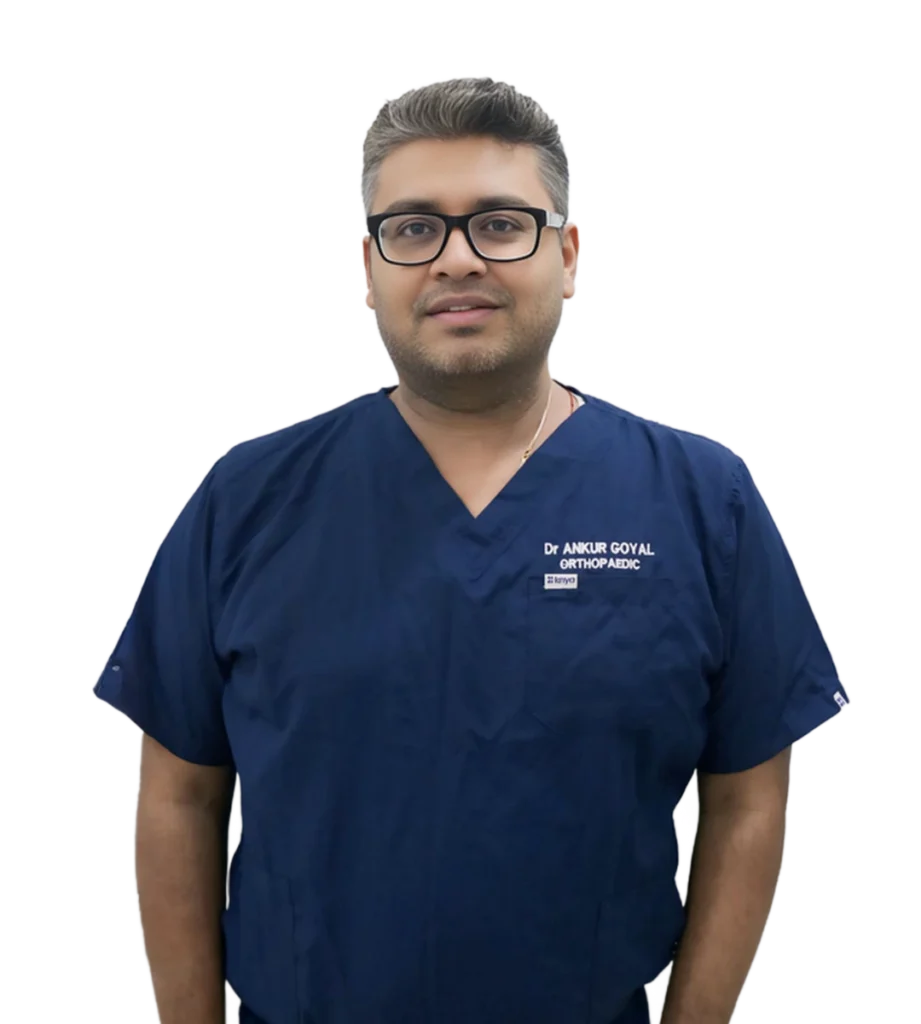
Years Experience
Know Your Doctor
Dr. ANKUR GOYAL
M.B.B.S., MS., FISM Trauma & Joint Replacement Fellowship in Sports Medicine, Arthroscopy Surgery & Director
Dr. Ankur Goyal, a specialist in knee, hip, sports injury, and trauma surgery, provides personalized treatment with a patient-centric approach. With expertise in robotic and conventional knee replacements, as well as arthroscopic and joint-preserving surgeries, he ensures the highest standard of orthopedic care. Dr. Goyal is actively involved in conferences, presenting research papers, and remains dedicated to excellence with a compassionate touch.
Our Services
Service We Provide
TRAUMA
TRAUMA
SPORTS INJURIES
SPORTS INJURIES
KNEE REPLACEMENT
KNEE REPLACEMENT
HIP REPLACEMENT
HIP REPLACEMENT
ARTHROSCOPY
ARTHROSCOPY
MENISCUS INJURY
MENISCUS INJURY
Ready to receive our ORTHO care? We're always here to serve you. Schedule an appointment Today
Book an Appointment
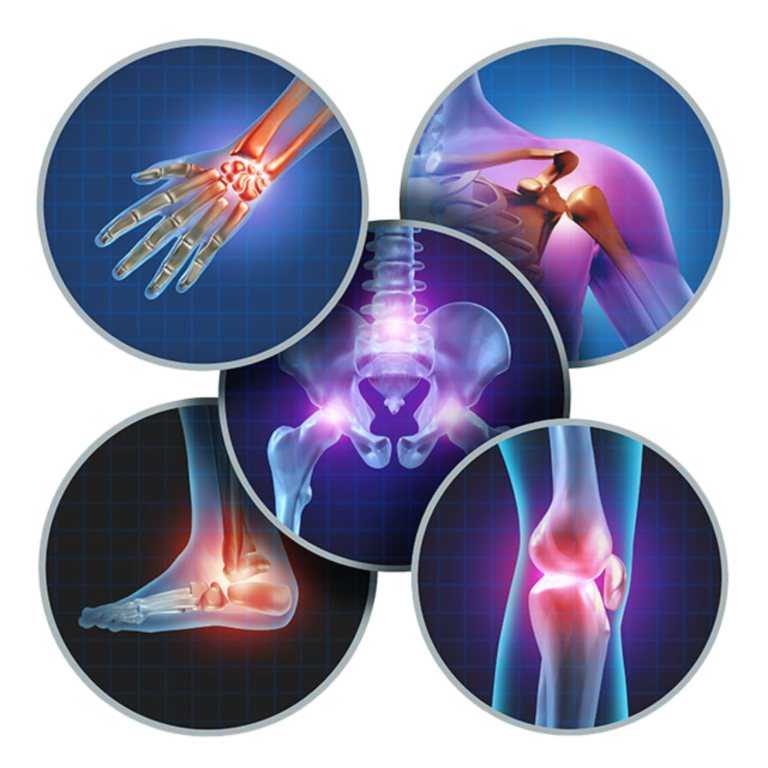

Joint Replacement Surgeries
Our Testimonials
Success Stories: Life After Treatment
Get In Touch
Discover Excellent Ortho Care Near You
Bringing 10+ Years of Medical Expertise to You
Frequently Asked Questions
What is shoulder replacement surgery?
This surgery replaces the ball-and-socket joint of the shoulder with metal and plastic parts. It’s usually used as a last resort to treat severe damage, deformity, or chronic pain.
How successful is the surgery?
Shoulder replacement surgery is very successful at relieving pain, but it’s not perfect. You might still feel some pain when the weather changes or if you’re too active. The amount of improvement in range of motion is less predictable than pain relief.
What can you never do after knee replacement?
- do not sit with your legs crossed for the first 6 weeks.
- do not sleep with a pillow under your knee (you do not need to sleep in a special position after the operation)
- do not kneel on your new knee until your doctor says you can.
- do not stand for long periods of time as this could cause swelling in your ankles.
What is the best position to sit after knee replacement?
After knee replacement surgery, the best sitting position involves maintaining a straight knee, avoiding prolonged sitting, and using a firm chair with armrests and back support.
Who is a candidate for hip replacement surgery?
Candidates include individuals with severe hip pain, joint stiffness, and limited mobility due to arthritis, injury, or degeneration, especially when non-surgical treatments have not provided relief.
Who is a candidate for hip replacement surgery?
Candidates include individuals with severe hip pain, joint stiffness, and limited mobility due to arthritis, injury, or degeneration, especially when non-surgical treatments have not provided relief.
How long does it take to recover from a sports injury?
With proper at-home treatment, minor strains and sprains can take a week or so to heal before you’re back in the game. More severe injuries of this nature, however, can take three months or longer in some cases.
What is the most painful sports injury?
The “worst” sports injury is subjective. But injuries like torn ACLs, herniated discs, compound fractures, and dislocated joints are often considered among the most painful and challenging to recover from.
How is trauma treated?
Post-traumatic stress disorder treatment can help you regain a sense of control over your life. The main treatment is talk therapy, also known as psychotherapy. But treatment also can include medicine.
How can trauma affect people?
You may experience some or all of the following:
- too much emotion
- too little or no emotion
- depression
- feeling hopeless, helpless, worthless
- shame, fear
- anger, rage
- grief, sadness n anxiety, panic attacks.
How can I prepare myself for the operation?
If you smoke, stopping smoking now may reduce your risk of developing complications and will improve your long-term health.
Try to maintain a healthy weight. You have a higher risk of developing complications if you are overweight.
Regular exercise should help to prepare you for the operation, help you to recover and improve your long-term health. Before you start exercising, ask the healthcare team or your GP for advice.
Speak to the healthcare team about any vaccinations you might need to reduce your risk of serious illness while you recover. When you come into hospital, practise hand washing and wear a face covering when asked.
What are the benefits of surgery?
You should have less pain and be able to use your shoulder better.
Our Team







Our Testmonial
Patients praise Dr. Ankur Goyal compassion.


Also, she is very polite and humble in nature. Thanks, Nasreen for all the help and treatment you did for me.
Very friendly, helpful and a superb doctor,
He has done my surgery for ACL tear of my knee... And I am feeling good after Surgery.. Thanks to Dr Ankur 😌, Not to forget his physio team Dr chhavi and Dr Tanya both helped me a lot for my knee movement. ... Thanks 😌
And they got one of the finest physiotherapist here.
Tanya ma’am and her team are amazing people.
They made actually work on my formation and posture.
I am feeling so relived of pain just in a week with consistent exercises they taught me.

